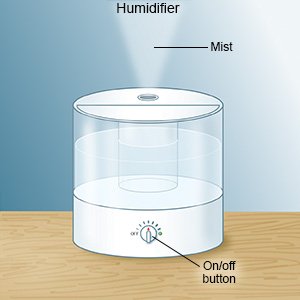Nosebleed
Medically reviewed by Drugs.com. Last updated on Apr 6, 2025.
A nosebleed, or epistaxis, occurs when one or more of the blood vessels in your nose break. You may have dark or bright red blood from one or both nostrils. A nosebleed is most commonly caused by dry air or picking your nose. A direct blow to your nose, irritation from a cold or allergies, or a foreign object can also cause a nosebleed.
DISCHARGE INSTRUCTIONS:
Return to the emergency department if:
- Your nasal packing is soaked with blood.
- Your nose is still bleeding after 20 minutes, even after you pinch it.
- You have a foul-smelling discharge coming out of your nose.
- You feel so weak and dizzy that you have trouble standing up.
- You have trouble breathing or talking.
Contact your healthcare provider if:
- You have a fever and are vomiting.
- You have pain in and around your nose that is getting worse even after you take pain medicines.
- Your nasal pack is loose.
- You have questions or concerns about your condition or care.
Drugs used to treat this and similar conditions
Cyklokapron
Cyklokapron is used for bleeding disorder, factor ix deficiency, hemophilia a
Zoladex
Zoladex (goserelin) is used to treat endometriosis and breast cancer in women and prostate cancer ...
Omvoh
Omvoh is used to treat moderate to severe ulcerative colitis or Crohn's disease in adults. This ...
Dextran 70 6% in 5% Dextrose
Dextran 70 6% in 5% Dextrose is used for bleeding disorder
Dextran, high molecular weight
Dextran, high molecular weight systemic is used for bleeding disorder
Goserelin
Goserelin implants are used to treat the symptoms of prostate cancer. Includes goserelin side ...
Tranexamic acid
Tranexamic acid systemic is used for bleeding disorder, factor ix deficiency, heavy menstrual ...
First aid:
- Sit up and lean forward. This will help prevent you from swallowing blood. Spit blood and saliva into a bowl.
- Apply pressure to your nose. Use 2 fingers to pinch your nose shut for 10
- Apply ice on the bridge of your nose to decrease swelling and bleeding. Use a cold pack or put crushed ice in a plastic bag. Cover it with a towel to protect your skin.
- Pack your nose with a cotton ball, tissue, tampon, or gauze bandage to stop the bleeding.
Medicines:
- Medicines applied to a small piece of cotton and placed in your nose. Medicine may also be sprayed in or applied directly to your nose. You may need medicine to prevent an infection. If bleeding is severe, medicine may be injected into a blood vessel in your nose.
- Take your medicine as directed. Contact your healthcare provider if you think your medicine is not helping or if you have side effects. Tell your provider if you are allergic to any medicine. Keep a list of the medicines, vitamins, and herbs you take. Include the amounts, and when and why you take them. Bring the list or the pill bottles to follow-up visits. Carry your medicine list with you in case of an emergency.
Prevent another nosebleed:
- Keep your nose moist. Put a small amount of petroleum jelly inside your nostrils as needed. Use a saline (saltwater) nasal spray. Do not put anything else inside your nose unless your healthcare provider says it is okay. Do not use oil-based lubricants if you use oxygen therapy. They may be flammable.
- Use a cool mist humidifier to increase air moisture in your home. This will help your nose stay moist.

- Do not pick or blow your nose for at least a week. You can irritate or damage your nose if you pick it. Blowing your nose too hard may cause the bleeding to start again. Do not bend over or strain as this can cause the bleeding to start again.
- Avoid irritants such as tobacco smoke or chemical sprays such as cleaners.
Follow up with your healthcare provider as directed:
Any packing in your nose should be removed within 2 to 3 days. Write down your questions so you remember to ask them during your visits.
© Copyright Merative 2025 Information is for End User's use only and may not be sold, redistributed or otherwise used for commercial purposes.
The above information is an educational aid only. It is not intended as medical advice for individual conditions or treatments. Talk to your doctor, nurse or pharmacist before following any medical regimen to see if it is safe and effective for you.
Further information
Always consult your healthcare provider to ensure the information displayed on this page applies to your personal circumstances.
